Good to know.
The most important tips and tricks for snowshoe hikes
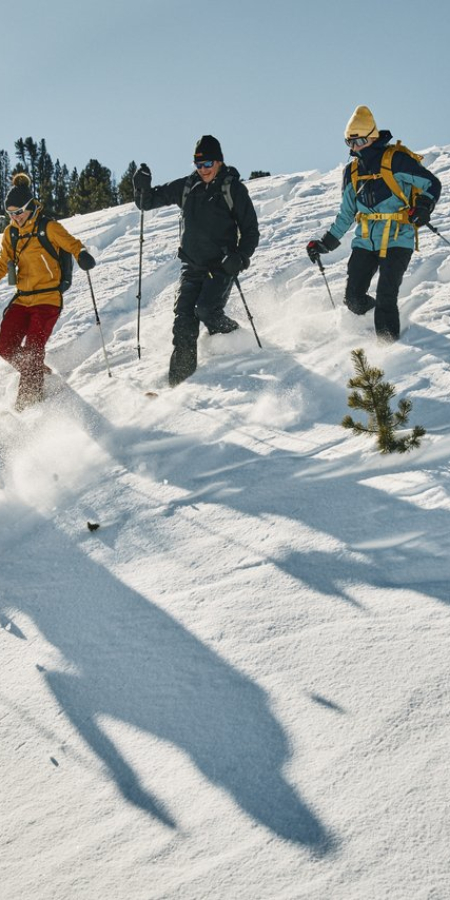
Basic equipment
Choosing the right equipment is crucial for an optimal snowshoeing experience. High-quality snowshoes with special climbing aids and crampons are essential for safe and pleasant ascents as well as for stable footing on steep, snow-covered terrain. Adjustable, lightweight walking poles with large discs also make a significant contribution to increasing stability on uneven snow. To be well equipped for longer tours, a suitable rucksack should be used to carry drinks, snacks and other snowshoe hiking accessories.
- Snowshoes
- Adjustable poles with large discs
- Backpack (20 to 30 litres)
Clothing
When snowshoeing, the onion principle is ideal for adapting to changing temperatures. It is advisable to wear windproof and waterproof clothing and avoid cotton fabrics as they absorb moisture. Merino wool is a good choice as it is breathable and temperature-regulating.
- Thermal underwear
- Warm socks
- Winter trousers
- Underjacket
- Winter jacket
- Sturdy, high and waterproof winter shoes
- Buff
- Headband
- Gloves
- Sunglasses or ski goggles
- Dry spare clothes
- Rain jacket and possibly rain trousers
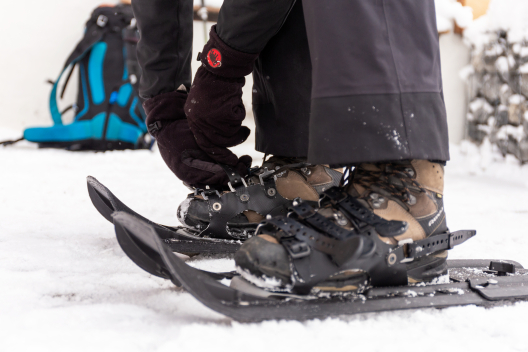
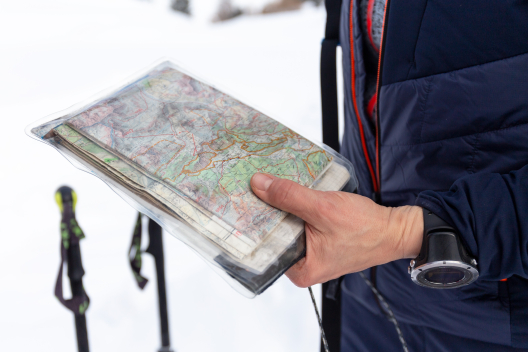
This belongs in the rucksack
A first aid kit, a fully charged mobile phone and a power bank for emergency calls are essential in every snowshoe hiking rucksack. A lightly insulated seat cushion also helps you to find a comfortable place to sit in the snow.
- First aid kit
- Repair kit
- Hiking map & compass
- Mobile phone & power bank
- Sun cream
- ID card
- Headlamp
- Seat cushion
- Cash
Avalanche equipment
In regions with slopes of over 30 degrees and away from safe routes, there is a risk of avalanches. It is essential to have the appropriate avalanche equipment, knowledge of avalanche awareness and sufficient experience.
- 3-antenna avalanche transceiver (LVS)
- Avalanche shovel
- probe
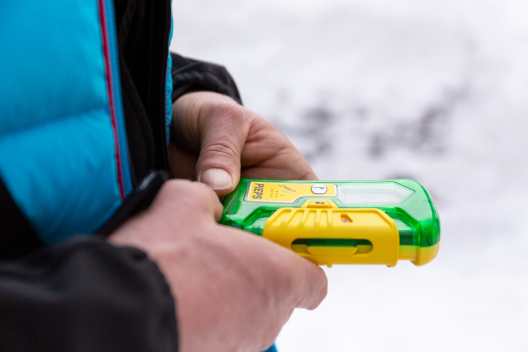
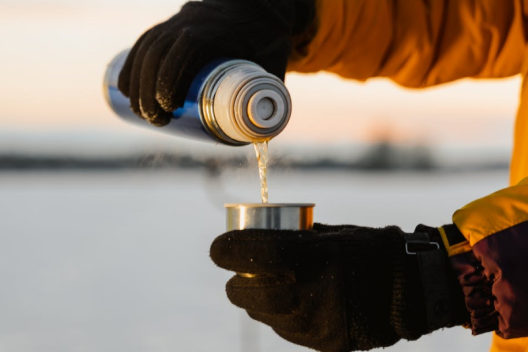
Catering
Regular hydration breaks are also important in winter, ideally with warm tea from a thermos flask. Keep nuts, muesli bars and fruit in your rucksack for energy on the move. Ready-made soups in thermos flasks are practical for a hot lunch and something sugary, such as chocolate, should not be missing either.
Thermos flask
Muesli bars, nuts, etc.
Ready-made soups
chocolate
Planung
Checking the weather and snow conditions before the tour is essential for adequate preparation. It is advisable to inform someone about the planned route and the expected return time. It is also important to heed warnings about avalanche danger and avoid dangerous areas. The avalanche bulletin shows current danger levels. For beginners, it is advisable to go on your first tour with a trained guide.

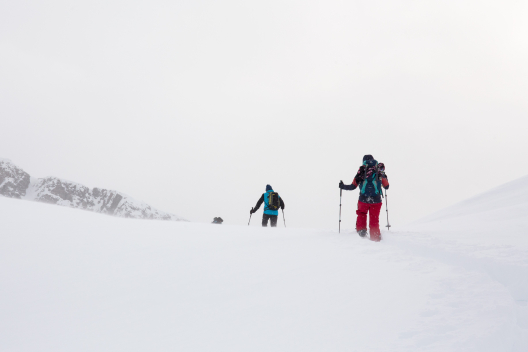
Technical aids
Emergency numbers
- Ambulance: 144
- Police: 117
- Rega: 1414
App-Empfehlungen
Environmental awareness
Respect for nature is important. On the tours, you always take your own rubbish with you or dispose of it correctly. In addition, when snowshoeing, care must be taken to stay on the marked trails in order to protect sensitive ecosystems. The resting areas of wild animals should also be respected, as they are particularly dependent on their hiding places during the winter months. Further information on considerate snow sports can be found under Natur-Freizeit.

Everything around the topic.
Snowshoeing
Snowshoeing in the Engadin is a real insider tip in Graubünden due to its many secluded mountain valleys. Discover the natural treasures on a snowshoe tour through the region, for example with local mountain guides and hiking leaders.
